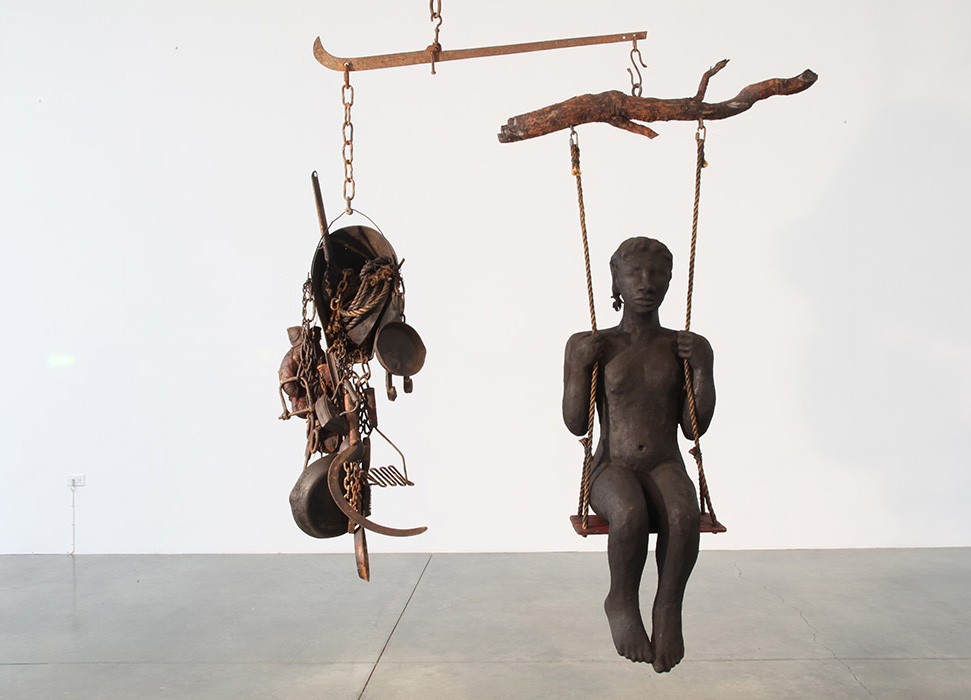
Alison Saar ’78. Weight, 2012. Fiberglass, coal dust, rope, wood, vintage cotton scale, and found tools and objects Dimensions variable. Courtesy of L.A. Louver, Venice, California.
Alison Saar ’78
Weight, at first glance, appears to be a young girl playing on a swing, until one realizes that the child is stripped bare. Her swing is attached to a broken branch that hangs from a vintage cotton scale. Her weight is counterbalanced with a coal scuttle “cornucopia” of tools of domestic labor—a flat iron, a cast-iron skillet, a washboard, and other objects—bound together with baling wire and tar. She is being equated with a future of menial labor: char women, nannies, maids, and cooks. I made this piece after witnessing, firsthand, many talented young girls of color in high school who, despite getting accepted into good colleges and receiving scholarships, found themselves unable to close the gap in the cost of going on to college and often ended up following the minimal-wage career paths of their parents as domestic laborers.
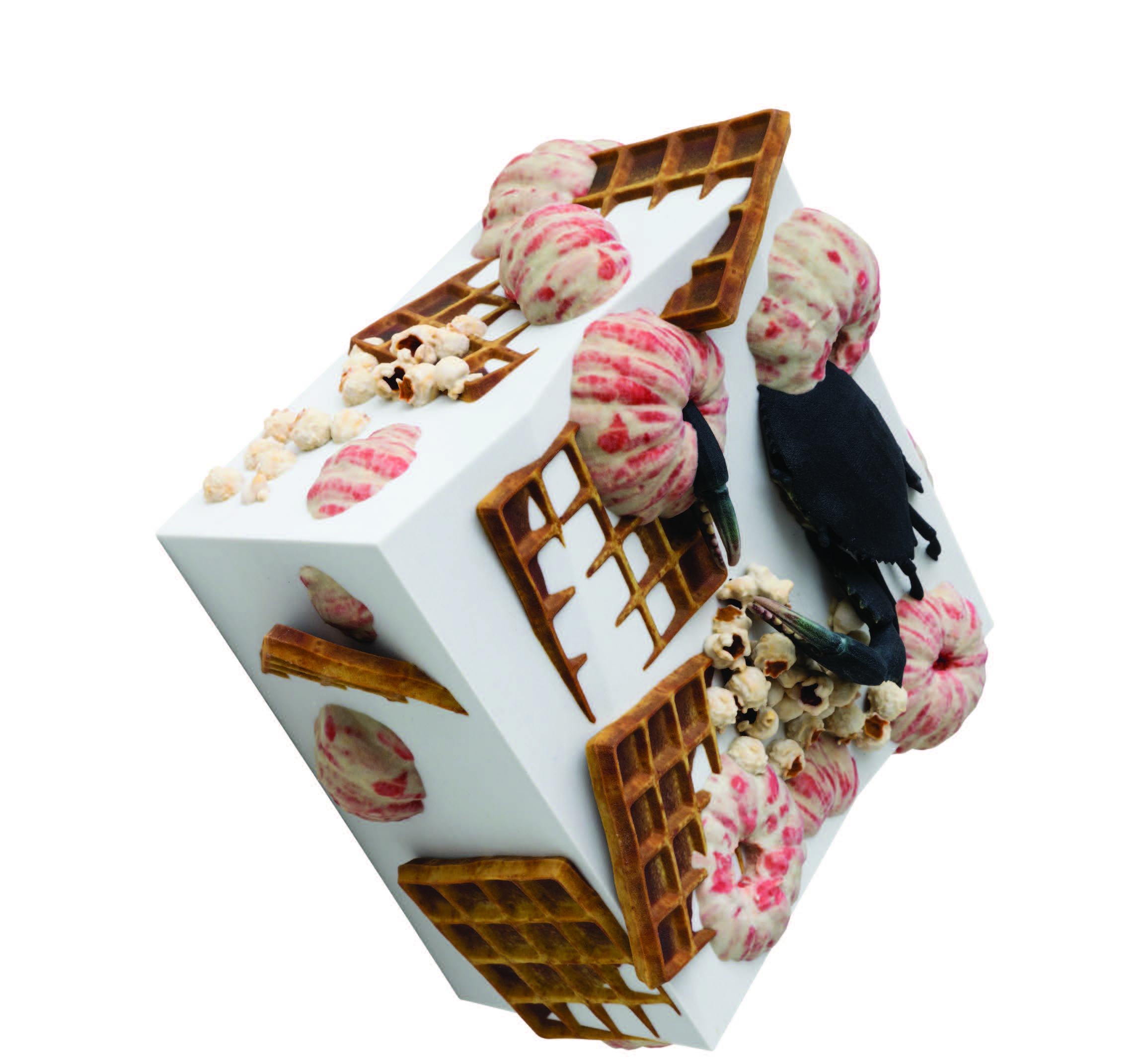
Pae White ’85. Dither…tangerines, waffles, popcorn and a crab, 2017. Colored sandstone. 12 x 12 x 5 1/2 inches. Courtesy of the artist and Kaufmann Repetto Gallery, Milan, Italy. Photo: Andrea Rossetti
Pae White ’85
This piece is from a new body of work in which I am exploring the tradition of the still life but also materiality and viscerality. The pieces are 3-D prints using colored sandstone. The data of the forms were obtained from a library of dimensional clip art whose purpose is to supply video games and animations—essentially online worlds—with forms. These files are not intended to be brought forward in a dimensional way into our world because the flaws and irregularities will be scrutinized, whereas the world of digital fiction is much more forgiving. Breathing life into this data reveals forms that are familiar but quite sickly, which I find quite interesting.
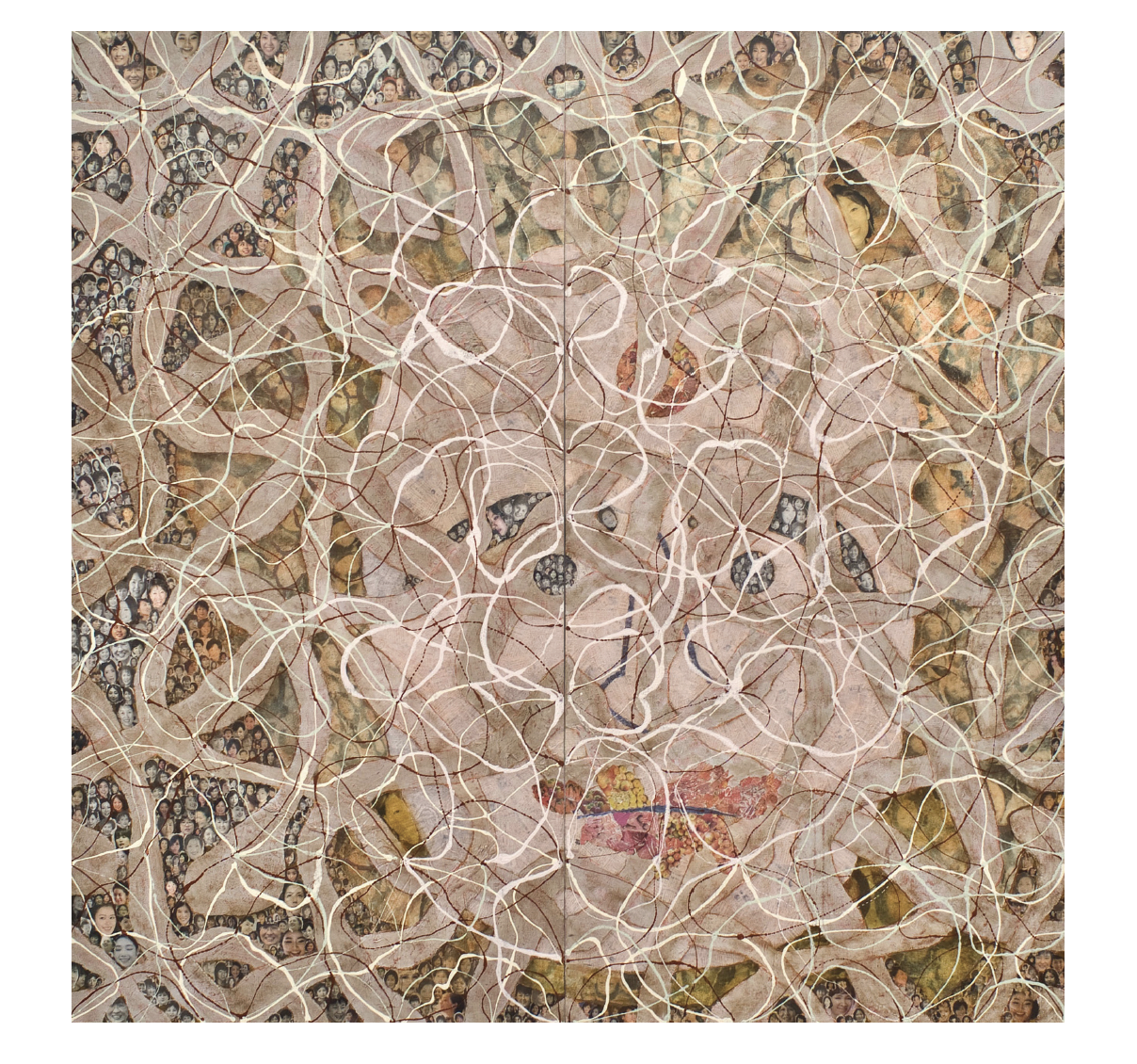
Talchum, 2011 Acrylic and collage on linen canvas
90 x 90 inches Courtesy of the artist Photo: Gene Ogami
Jane Park Wells ’93
Talchum is a diptych, painted in acrylic paint and paper collage using newspaper clippings, that depicts women’s faces culled from Korean newspaper ads. Talchum means “a mask dance” in Korean. On this Talchum, I played with my interest in rhythm and movement from traditional Korean music and dance. It represents a celebration of the much-needed improvements in the status of women in what had been a repressive Korean culture. My mother’s generation could never have dreamed of the changes that have occurred. It is a tribute to my mother, whose many talents were not allowed to flourish in her generation.
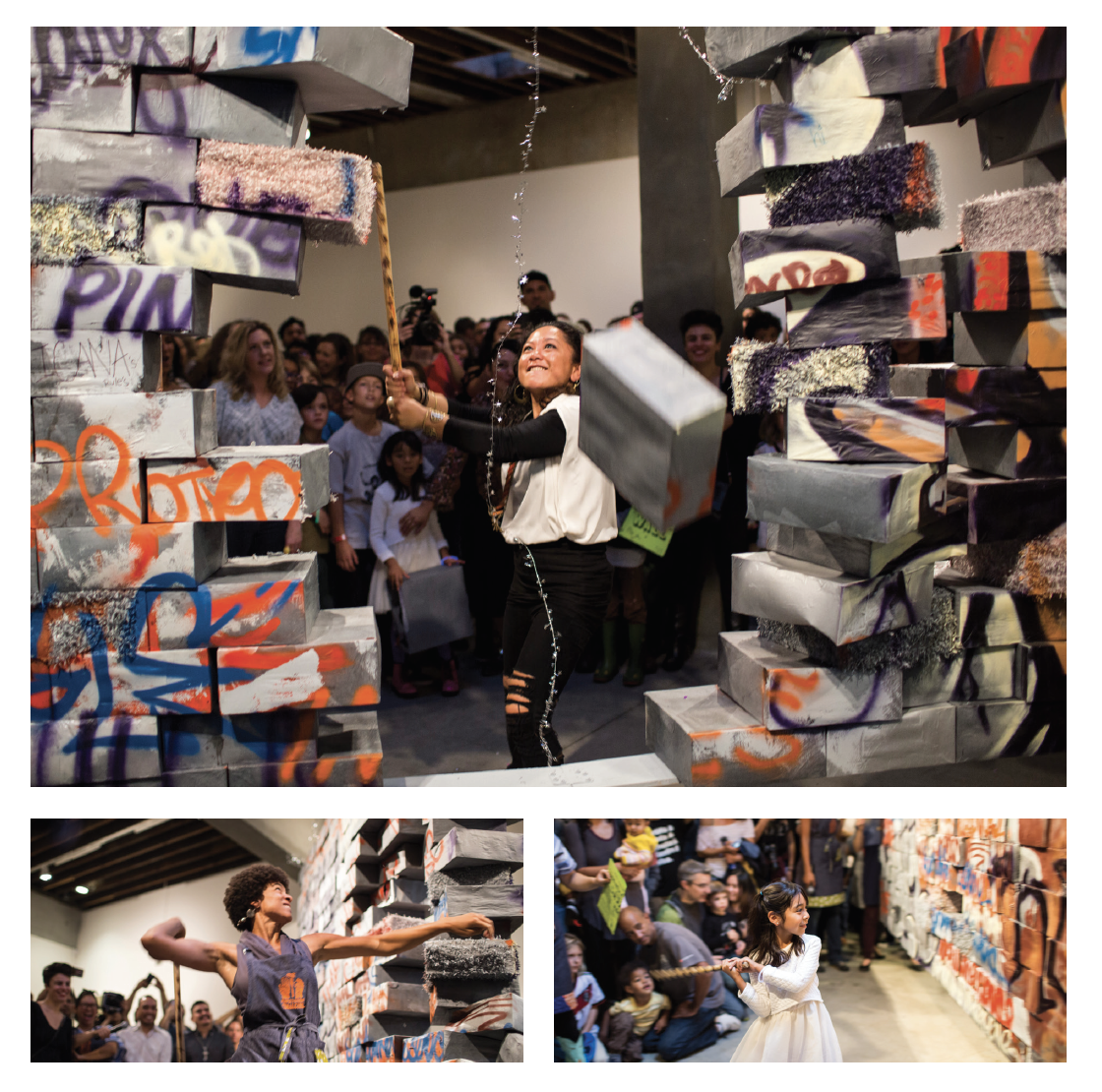
Sita Kuratomi Bhaumik ’02. Estamos contra el muro| We are against the wall, 2016. A project in collaboration with Piñatas Las Morenitas MartÃnez, The Little Piñata Maker, Cece Carpio (Trust Your Struggle), La Pelanga, The People’s Kitchen Collective, and Norma Listman. Installation at Southern Exposure, San Francisco, 2016. Photo: Sana Javeri Kadri
Sita Kuratomi Bhaumik ’02
In the fall of 2016, just before the election, I built a border wall made entirely of piñatas. Estamos contra el muro | We are against the wall was a joyous political critique, something that brought together an unlikely group of artists, chefs, DJs, piñata makers, activists, and graffiti artists to symbolically construct—and destroy—a border wall. In creating the wall, we also created a community connected by our stories of migration, brutal displacement, and resilience. On the evening of the destruction, I witnessed intense joy and anger. Above all, in our coming together, I felt hope and possibility.
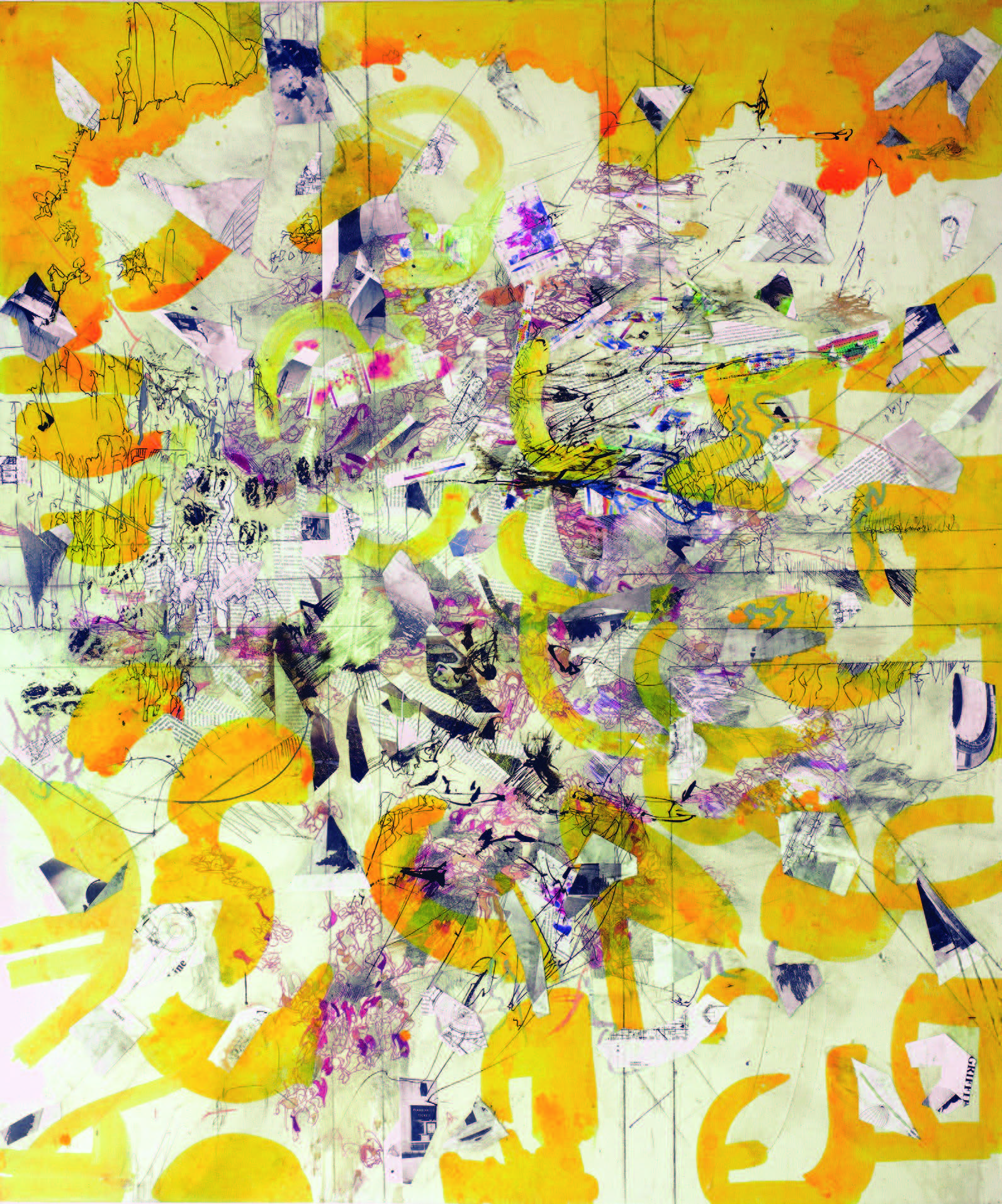
Christina McPhee ’76. P-22 in Griffith Park, 2017. Shellac-based and acrylic inks, oil paint, acrylic glaze, graphite, and found magazine collage on canvas. 50 1/4 x 42 1/4 x 2 1/2 inches. Courtesy of the artist. Photo: naxsmash group productions, 2017.
Christina McPhee ’76
This work is from a series of collage paintings that perform a remote landscape-mapping process that looks for exceptions across grids of exploding vectors and shards. Seven-year-old mountain lion P-22 ranges through Griffith Park, an oasis in Los Angeles’s urban density.
Mapping a way out—or a lack of ways—to ranges west and north, this collage integrates far-flung data points on big cats trapped in struggling ecosystems on the Iberian Peninsula with floor plans of the Griffith Observatory and climate-change drought visualizations. The plight of the wild translates to legend or an absurd aerial guide.
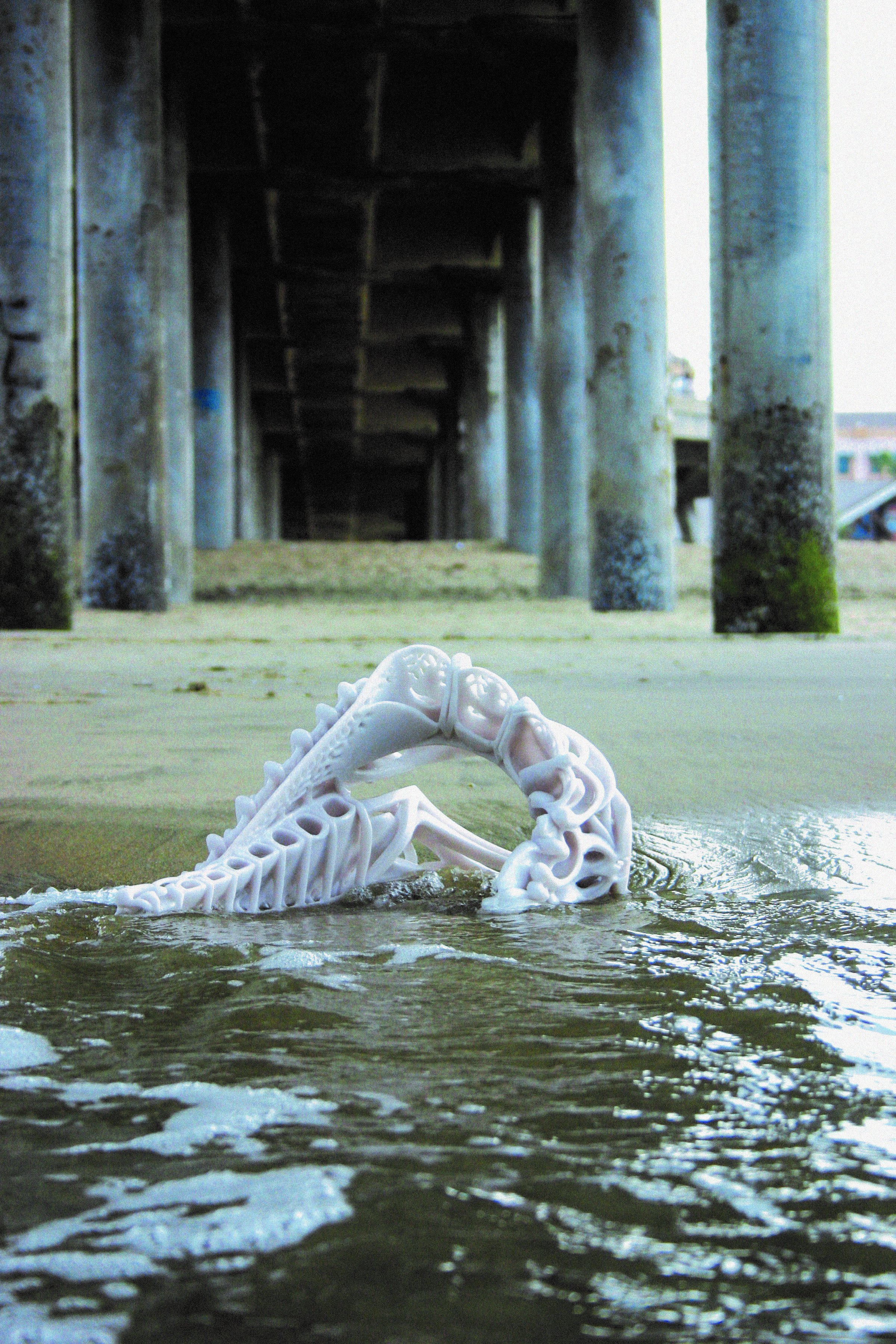
Elizabeth Turk ’83. Collar No. 7, 2003 Marble. 16 x 13 1/2 x 12 inches. Courtesy of Hirschl & Adler Modern, New York. Photo: Elizabeth Turk.
Elizabeth Turk ’83
This work surprised me. I thought it would break when I placed it in the ocean. I braced for the moment of “letting go,” when I would record its destruction. All that carving (over several years) had made my emotional attachment overwhelming. It was crazy to carve to this extreme, so slow. It was a kind of dedicated focus that took over too much of my life. The idea of forcing myself to witness its end was somehow liberating. Then, it didn’t break. And I was relieved. Magically, the matrix was stronger than I had imagined. So, I made another and another.
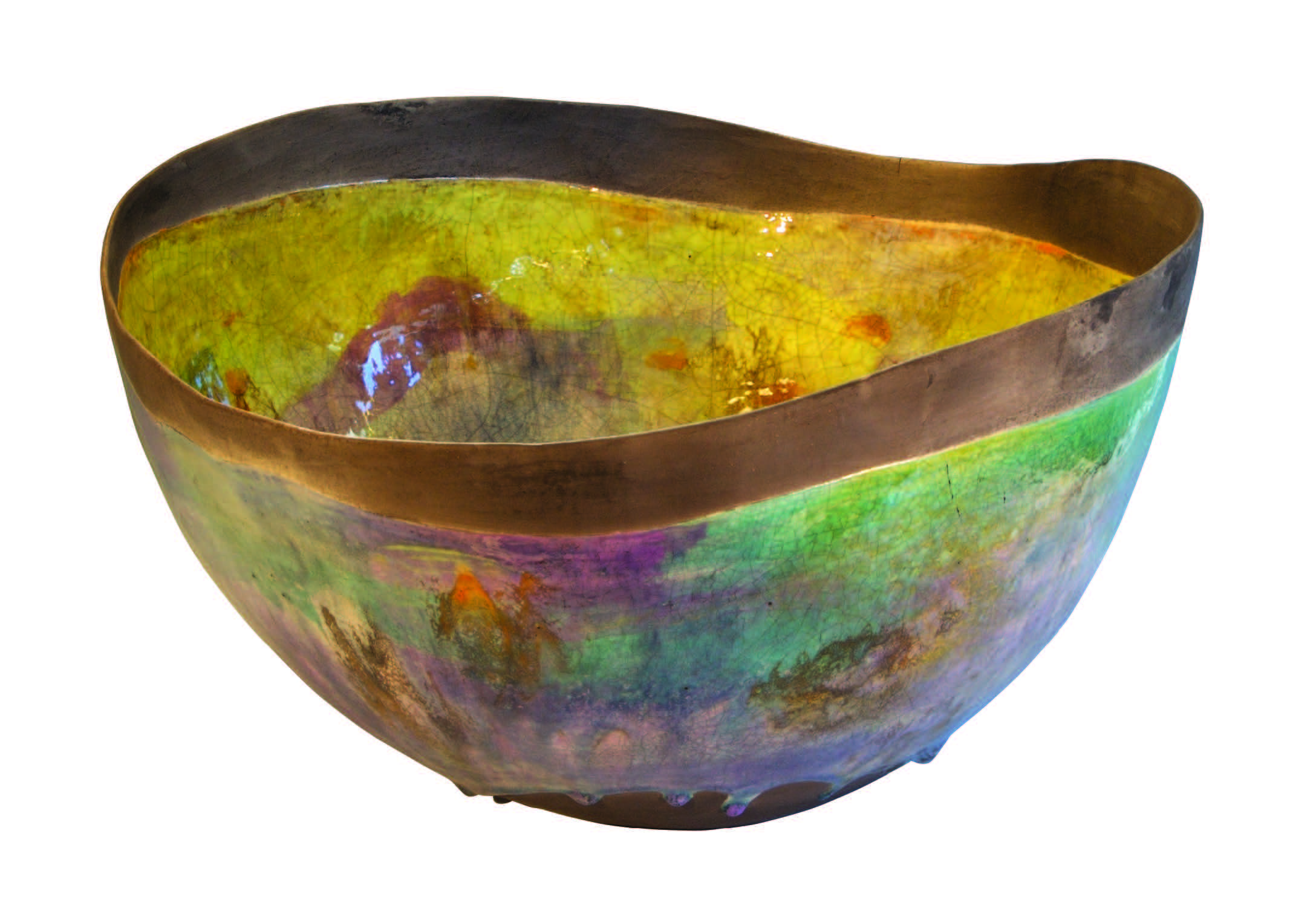
Angela de Mott ’71. In Memoriam, 2007. Raku-fired earthenware. 10 1/4 x 19 1/2 x 17 inches. Courtesy of the artist. Photo: Angela de Mott.
Angela de Mott ’71
After graduating from Scripps, I pursued painting and printmaking for four years in Europe. I then moved to the Los Angeles area, where I still live. After 20 years as a painter, I sought a multidimensional medium and turned to ceramics. Drawn to its Japanese aesthetic, I embraced Raku firing, making thin, asymmetrical vessels. Later, I explored luster firing as an artist in residence at the Beatrice Wood Center for the Arts in Ojai, California. In Memoriam is dedicated to my cousin, Lois Love Brown ’34. She encouraged me to choose Scripps and was my mentor, sharing her vision of beauty and her appreciation for Japanese aesthetics. This piece came together after I saw a show of David Hockney’s Yorkshire paintings. Taken by Hockney’s exuberant color and sense of abandon, I returned to my studio and glazed this piece. The result represents the integration of my years of painting with my ceramic form.

